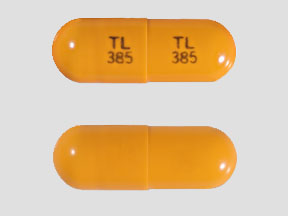Terazosin Disease Interactions
There are 2 disease interactions with terazosin.
Alpha-1 blockers (applies to terazosin) hypotension
Moderate Potential Hazard, High plausibility. Applicable conditions: Syncope, Autonomic Neuropathy, Dehydration, Diarrhea, Vomiting
Peripheral alpha 1- adrenergic receptor blocking agents (aka alpha 1- blockers) cause vasodilation and can produce marked hypotension, especially orthostatic hypotension with syncope or other postural symptoms such as dizziness, lightheadedness, and palpitations. Orthostatic effects are most common during initiation of therapy and often occur within 90 minutes after the first dose. However, they can also occur following a dosage increase or resumption of therapy after an interruption of more than a few days. Agents with alpha 1a specificity, such as tamsulosin, act primarily on the prostate but are not devoid of hypotensive effects. Therapy with peripheral alpha-1 blockers should be administered cautiously in patients with or predisposed to hypotensive or syncopal episodes. Caution is also advised in patients who are dehydrated (e.g., due to severe or prolonged diarrhea or vomiting), since they may be more sensitive to the hypotensive effect of the drugs. Therapy should be initiated with the lowest dosage possible and titrated gradually based on patient response and tolerance in accordance with the individual product package labeling. During initiation or reinstitution of therapy and following an increase in dosage, patients should be advised not to rise abruptly from a sitting or recumbent position and to avoid situations where injury could result if syncope occur. Concomitant use of alcohol, extensive periods of standing, prolonged or intense exercise, and exposure to heat can also precipitate orthostatic hypotension and should be minimized. If dizziness, lightheadedness or palpitations occur, the patient should sit or lie down, and seek medical attention if symptoms are recurrent or bothersome.
Terazosin (applies to terazosin) liver disease
Moderate Potential Hazard, Moderate plausibility.
Little data exist concerning the pharmacokinetic disposition of terazosin in patients with liver disease. Terazosin is known to be metabolized by the liver, and both parent drug (approximately 30%) and metabolites are excreted in the bile and urine. Therapy with terazosin should be administered cautiously in patients with significantly impaired hepatic function, since drug accumulation may occur.
Switch to professional interaction data
Terazosin drug interactions
There are 255 drug interactions with terazosin.
Terazosin alcohol/food interactions
There is 1 alcohol/food interaction with terazosin.
More about terazosin
- terazosin consumer information
- Check interactions
- Compare alternatives
- Pricing & coupons
- Reviews (55)
- Drug images
- Side effects
- Dosage information
- During pregnancy
- Drug class: alpha blockers
- Breastfeeding
- En español
Related treatment guides
Drug Interaction Classification
| Highly clinically significant. Avoid combinations; the risk of the interaction outweighs the benefit. | |
| Moderately clinically significant. Usually avoid combinations; use it only under special circumstances. | |
| Minimally clinically significant. Minimize risk; assess risk and consider an alternative drug, take steps to circumvent the interaction risk and/or institute a monitoring plan. | |
| No interaction information available. |
See also:
Further information
Always consult your healthcare provider to ensure the information displayed on this page applies to your personal circumstances.


